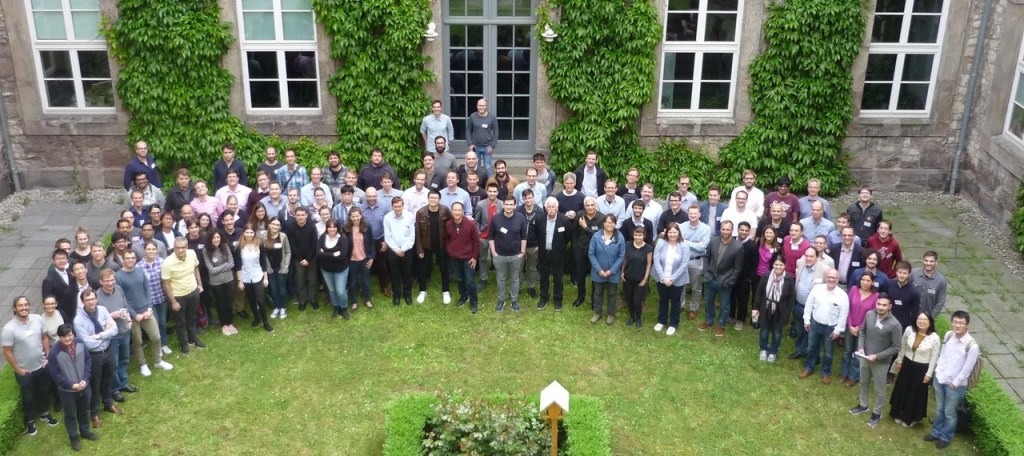
Philip Fowler travelled to Germany to attend the BioExcel Alchemical Free Energy workshop in Göttingen where he gave a talk.
Rapidly and accurately calculating the binding free energy of a small molecule to a large biological molecule, like a protein, would be of tremendous use in drug design or biotechnology. As you can imagine, there are a whole slew of methods, but one particular set have caught my attention since my PhD. Called alchemical free energy methods, these are derived from classical statistical mechanics and are, in theory, “exact”. The community of researchers in academia, and more recently, industry, especially pharmaceutical companies is small and since 2010, workshops on alchemical free energy methods have been held in Boston every other year. I was fortunate enough to make it over to the US for the workshop in May 2016. Back in May 2017, BioExcel joined forces with CompBioMed and held a one day meeting at UCL in London.
This year, BioExcel held the first European workshop on alchemical free energy methods and counted myself fortunate that I was invited to speak. I’d anticipated there being around 50-60 people attending so was surprised, pleased, but also a little daunted, when I arrived to find over 100 people had registered. After an introduction by Bert de Groot who led the local organising team from the Max Planck Institute for Biophysical Chemistry, John Chodera got us underway.

These types of small, focussed meetings are, in my opinion, crucial for keeping small communities like this alive and moving forward. It is a sign of good health that we had talks from PhD students, early-career and established researchers, as well as a keynote from William L. Jorgesen from Yale. The presence of researchers from companies like Bayer, UCB, Merck, Schrödinger, Janssen and Boehringer-Ingelheim, with the last two companies also sponsoring the workshop, showed how these methods are being used with some success to solve industrial problems.
As ever though, it is easy to talk about the talks but much of the value in a meeting like this comes from talking to people over coffee (kudos by the way for giving us mugs, not dainty cups) or in front of a poster. In fact, the health of a meeting can be judged, I feel, by how noisy the poster room is, and although it was a bit small for the number of posters, there was a consistent buzz around the posters over both days of the workshop.
So, overall, an excellent, small and friendly meeting, but perhaps more importantly, hopefully the start of a series of European workshops that will complement any future meetings arranged in the USA and help transition this important computational biomolecular technique into the mainstream.
